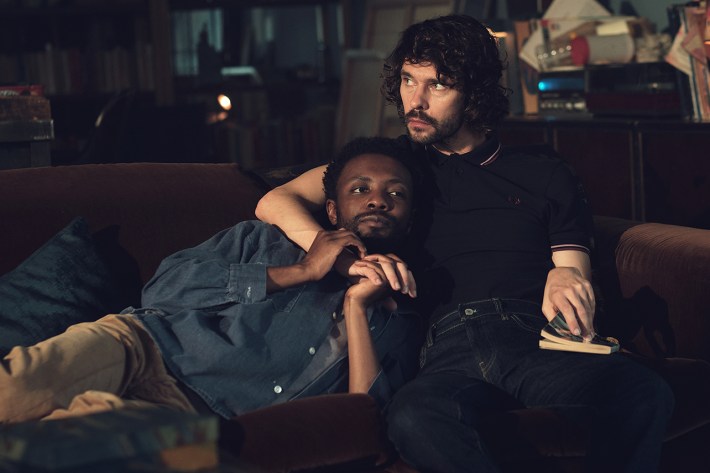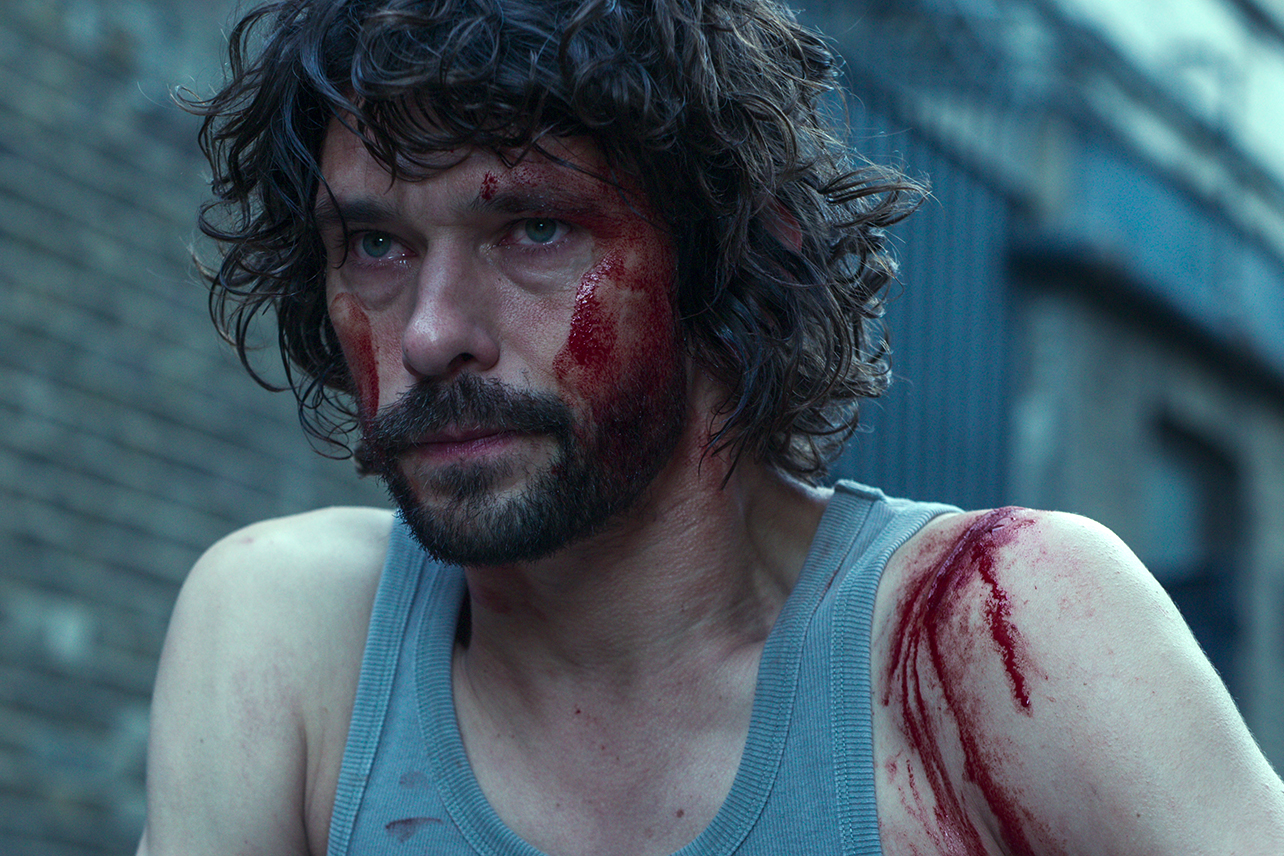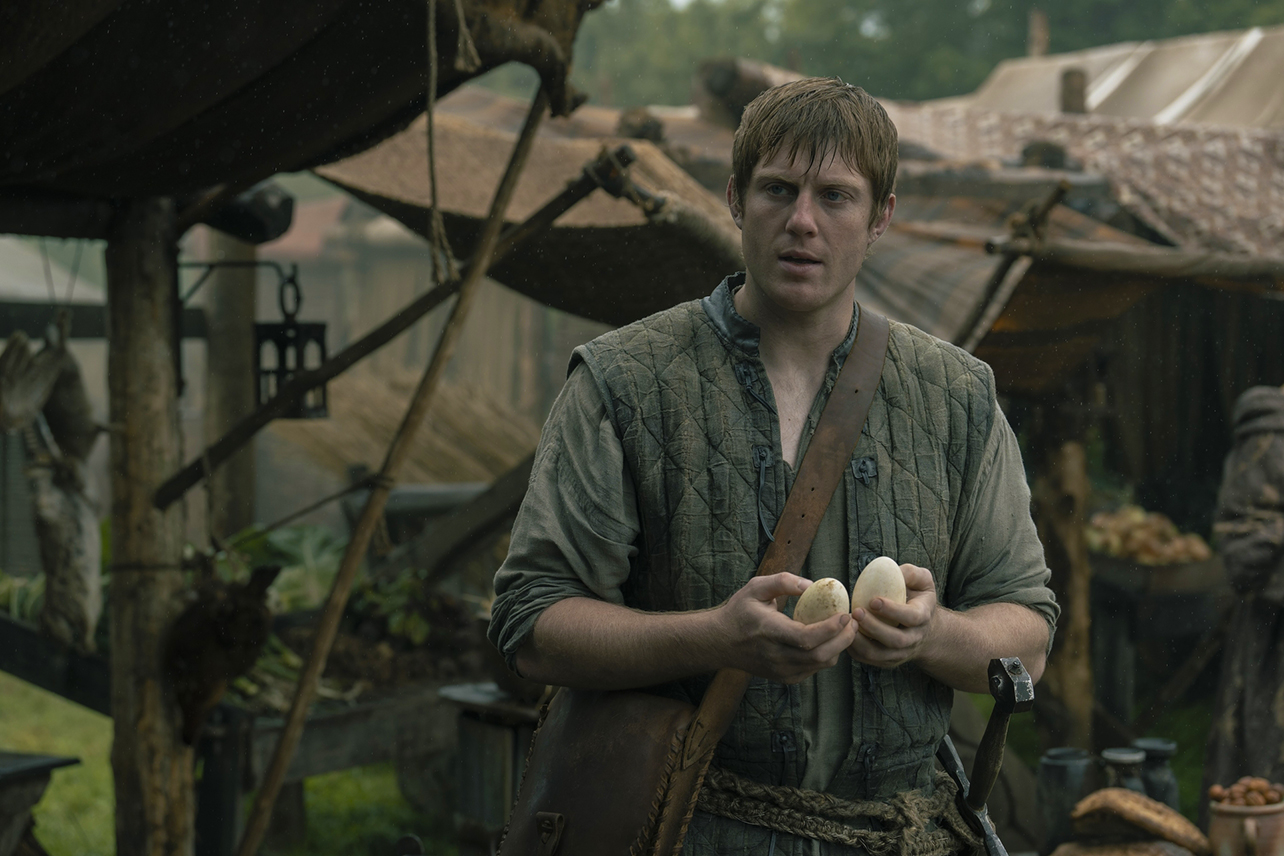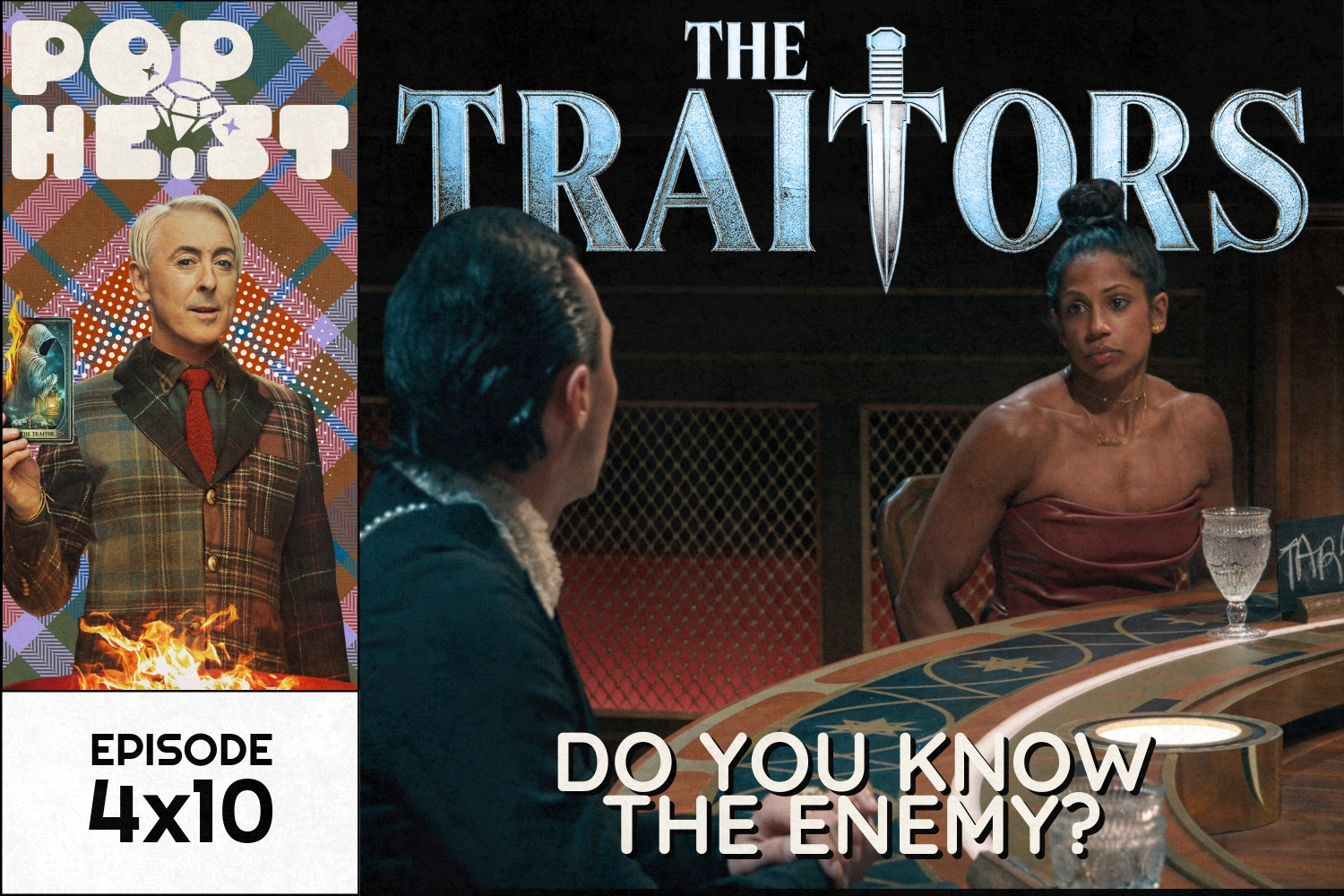As I began watching one of Netflix's new series, Black Doves, something stood out to me about the performance of Ben Whishaw. I've long been a fan of the actor for the vulnerability he mixes into his confident performances. He's reserved and introspective. He doesn't often say a lot in his roles — his characters tend to be reserved — but he can convey so much with just a look. Even when you don't see his face, such as when he gives voice to the lovable bear Paddington, he can tell a full story.
In 2001, he told Out Magazine that he didn't feel the need to discuss his sexuality, yet many of his roles found himself exploring queerness and sexuality. While he has spoken publicly about his sexuality, we'll stick to performance. In 2009, he was in Cock and played a gay man who falls in love with a woman. The next year, he played Oliver in The Pride, a play about the perceptions of sexuality over Britain's history. Last year, he was in Passages where he played one third of a love triangle when his husband begins an affair with a woman. Whishaw, for what it's worth, has played plenty of straight characters too.
So what is it about Sam that I found so invigorating? The answer I kept coming back to was violence.
Whishaw's portrayal of a queer hitman in Netflix's Black Doves stands in stark contrast to historical depictions of queerness and violence in media. Characters like Norman Bates in Psycho, Buffalo Bill in The Silence of the Lambs, and Bruno Anthony in Strangers on a Train perpetuated harmful stereotypes, often linking queerness with deviance, obsession, or outright monstrosity. These portrayals positioned queer-coded characters as villains whose identities were inseparable from their capacity for violence or manipulation.
We've come a long way from those films. The Silence of the Lambs came out in 1991, over three decades ago! Since then, we've seen significant strides in how queer men are portrayed in media, with more positive and nuanced representations taking center stage. Characters like David Rose in Schitt's Creek, Eric Effiong in Sex Education, and Titus Andromedon in The Unbreakable Kimmy Schmidt demonstrate the richness and variety of queer experiences, breaking away from reductive or harmful stereotypes.
But something entrances me about Whishaw's performance in Black Doves (and it's not just the scenes where he's mostly nude). Sam serves as a lens to examine the enduring legacy of violence faced by queer men — violence that is both external, inflicted by a prejudiced society, and internal, born from the need to navigate a world that often demands silence and conformity.
Hitmen in media are often portrayed as hyper masculine figures — stoic, detached, and morally impenetrable. They operate in a world where emotions are liabilities, relying on cold precision and unflinching brutality to survive. These characters are typically shaped by their rigid adherence to professional codes, with little room for vulnerability or personal connection. This archetype reinforces a narrow view of masculinity, where power and control are paramount, and internal complexity is suppressed. While iconic figures like Anton Chigurh in No Country for Old Men or John Wick offer compelling portrayals within these constraints, they rarely challenge the archetype's underlying assumptions, leaving little space for alternative interpretations.

In the show, Sam initially presents as the archetypal "triggerman" — precise, detached, and methodical in his work. He embodies the calculated efficiency expected of a professional hitman, suppressing his emotions to ensure survival in a ruthless profession. However, this façade begins to crack with the reemergence of Michael, his ex-lover, played by Omari Douglas. Their connection is a reminder of the life he has tried to leave behind, one defined by intimacy, vulnerability, and love — qualities that directly conflict with the cold pragmatism required of his job. Michael's presence forces him to confront the emotional walls he has built, and as those walls come down, his ability to remain the ideal "triggerman" seems doubtful.
The tension between Sam's professional identity and his personal life becomes a driving conflict of the show. His relationship with Michael not only stirs unresolved feelings but also exposes the limitations of his role as a hitman. The rules of his profession demand disconnection, yet Michael's reappearance compels him to care, to protect, and to risk. This tension between Sam's professional identity and his emotional connection to Michael mirrors the experience many queer people face while closeted. It's a performance that Whishaw absolutely nails.
When we're in the closet, society forces us into the role the world expects of us. We adopt a persona that is detached from ourselves. Our fear is that if we don't, society will reject us. This constant performance creates a barrier between who we are and who we're allowed to be, leaving us isolated even in the presence of others. This is the violence society inflicts upon queer people (and also the violence queer people end up inflicting upon ourselves). In some ways, it's cathartic to see Sam be the one doing the shooting and killing. But the sweetest moments in the show are the ones where we see the "triggerman" persona fall.
Black Doves offers a profound meditation on identity, queerness, and the violence of societal expectations, all anchored by Ben Whishaw's remarkable performance (though Kiera Knightly and Sarah Lancashire are well deserving of praise for their performances too). In Sam, we see a character navigating the duality of his existence — a hitman bound by professional codes of cold detachment and a queer man yearning for connection and authenticity. Whishaw brings vulnerability to a role that could have easily fallen into archetype, peeling back the layers of Sam's carefully constructed persona to reveal a person struggling with the tension between who he is and who he's forced to be. It's this internal conflict, far more than the external violence, that makes Black Doves so compelling. Watching Whishaw balance the brutality of Sam's profession with the tenderness of his relationship with Michael is a reminder that queerness and complexity deserve space in every genre, even those as gritty and unforgiving as a hitman drama. By allowing Sam to falter, to feel, and ultimately to love, Black Doves redefines what it means to tell queer stories — messy, human, and unapologetically real.






